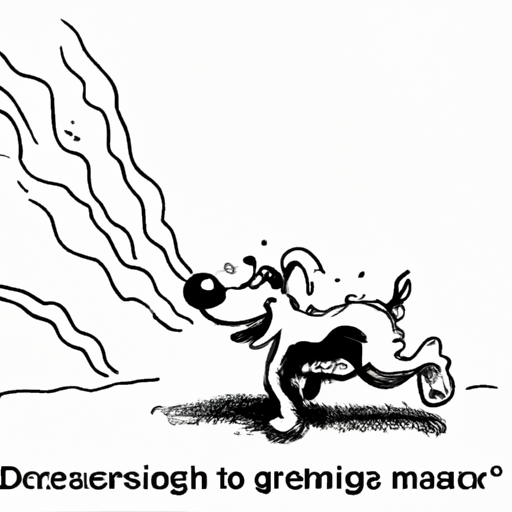As a caregiver, you cherish your canine companion. But there’s one aspect of dog ownership that puzzles, and sometimes disturbs you – the unique, pungent aroma that emanates from your furry friend after a bath or a romp in the rain. Why do wet dogs smell?
Understanding Your Dog’s Skin
Your dog’s skin is a thriving ecosystem. It’s home to a variety of microorganisms, including bacteria and yeast. These microscopic organisms produce various compounds and gases as part of their metabolic processes, which contribute to your dog’s unique scent. When your dog gets wet, the water molecules evaporate, carrying these odorous compounds into the air.
- Bacteria: Bacteria on your dog’s skin break down proteins and fats into compounds that have a distinctive smell.
- Yeast: Yeasts, a type of fungi, also contribute to your dog’s scent. They break down sugars into alcohol and other compounds that have a unique smell.
The Role of Dog Hair
Your dog’s hair plays a significant role in the ‘wet dog smell’. Dog hair is porous, meaning it absorbs and holds onto odor-causing compounds. When your dog gets wet, the water molecules displace these compounds, releasing them into the air. This is why the smell seems to intensify when your dog is wet.
- Type of Hair: Dogs with thicker, longer hair tend to have a stronger ‘wet dog smell’ because their hair can hold more odor-causing compounds.
- Oiliness: Some dogs have oilier coats than others. These oils can trap more odor-causing compounds, leading to a stronger smell.
Hygiene and Health Factors
Maintaining proper hygiene and health for your dog can help manage the ‘wet dog smell’. Regular grooming, including baths and brushing, can help remove the odor-causing compounds from your dog’s skin and coat.
| Health Factor | Impact on Smell |
|---|---|
| Diet | A balanced diet can help regulate your dog’s skin flora, reducing odor. |
| Medical Conditions | Certain conditions like skin infections can increase the ‘wet dog smell’. |
| Hygiene | Regular grooming can help manage the smell. |
Tips to Manage the Wet Dog Smell
Here are some practical tips to manage the wet dog smell:
- Ensure your dog is thoroughly dry after a bath or getting wet in the rain.
- Regular grooming and baths with a dog-friendly shampoo can help manage the smell.
- Maintain a balanced diet for your dog.
- Regular vet check-ups can help identify and treat any underlying conditions that may be contributing to the smell.
Frequently Asked Questions (FAQ)
1. Why does my dog smell more when it’s wet?
When your dog gets wet, the water displaces odor-causing compounds from their skin and coat, releasing them into the air. This is why the smell seems to intensify when your dog is wet.
2. Can diet impact the ‘wet dog smell’?
Yes, a balanced diet can help regulate your dog’s skin flora, reducing the ‘wet dog smell’.
3. How can I manage the ‘wet dog smell’?
Regular grooming, ensuring your dog is thoroughly dry after getting wet, maintaining a balanced diet, and regular vet check-ups can help manage the ‘wet dog smell’.



